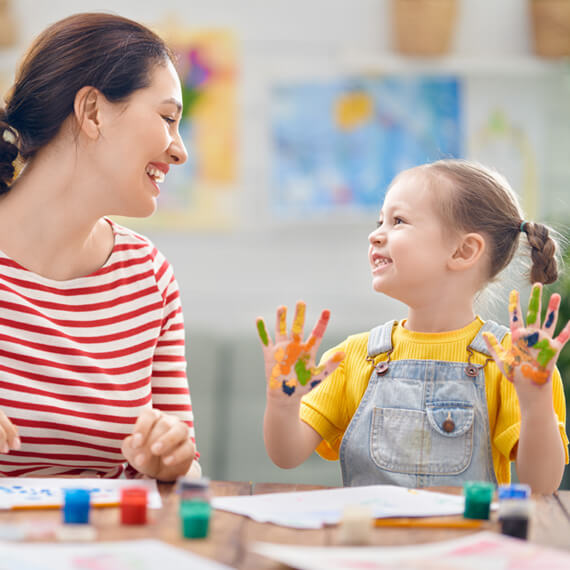Curriculum
The Panchakosha Path
Mantra Global Pre School Curriculum
At Mantra Global Pre School, our Eclectic Approach blends global educational philosophies with Indian cultural values. We draw from Montessori for independence and sensorial learning, Reggio Emilia for inquiry-based projects and expressive arts, and Waldorf for rhythm, creativity, and nature connection. This integrated framework aligns with NEP 2020’s Panchakosha model—nurturing physical, vital, emotional, intellectual, and spiritual growth. The “Mantra” in our name reflects our focus on mindfulness, ethics, and Indian values like honesty, respect, and family bonds. Practices like Story Yoga, meditation, and cultural storytelling foster inner harmony and prepare children for life beyond academics.
Physical & Motor Skills (Sharirik Vikas)
Goals
Development of gross motor skills (running, jumping, climbing, balancing), fine motor skills (pincer grasp, drawing, cutting, manipulating small objects), and eye-hand coordination.
Activities
Daily outdoor play, participation in age-appropriate sports activities (e.g., inspired by Kickers Club, Kids Marathon), Story Yoga, free movement, dance, building with large blocks, puzzles, and various art activities.




Development of Life Energy (Pranik Vikas)
Goals
Promoting vitality, energy regulation, and fostering a deep connection with the natural world.
Activities
Regular outdoor exploration, gardening, nature walks, simple breathing exercises (integrated into Story Yoga or quiet time), and opportunities for spontaneous free movement.
Socio-Emotional Development (Manasik Vikas)
Goals
Cultivating self-awareness, self-regulation, empathy, collaboration, effective conflict resolution, and developing personal awareness.
Activities
Extensive collaborative group work, dramatic play and role-playing scenarios, daily circle time for sharing and problem-solving, and community engagement activities that promote social interaction.




Language & Literacy (Bauddhik Vikas)
Goals
Fostering oral language development, phonological awareness, word recognition, and emergent reading and writing skills.
Activities
Rich storytelling sessions, rhymes, songs, group discussions, puppet shows, exposure to a diverse range of books, emergent writing through drawing and dictation, and phonics instruction.
Numeracy & Logical Thinking (Bauddhik Vikas)
Goals
Developing number sense, counting abilities, basic operations (addition/subtraction), pattern recognition, problem-solving, and critical thinking.
Activities
Engaging math games, hands-on manipulation of materials (e.g., Montessori Golden Beads), sorting activities, puzzles, building with blocks, and inquiry-based provocations that encourage logical reasoning.




Creative Arts & Expression
Goals
Stimulating imagination, fostering creativity, and enabling self-expression through various mediums, embracing the “100 languages” concept.
Activities
Drawing, painting, sculpting with clay, music and singing, dance, dramatic play, and open-ended art activities using diverse materials.
Cultural & Values Education (Chaitsik Vikas)
Goals
Cultivating an appreciation for Indian culture and global diversity, instilling moral values, promoting community responsibility, and fostering respect for all living things.
Activities
Celebration of Indian festivals, cultural storytelling, traditional games, learning about different communities, and discussions on ethical behavior and social responsibility.


The Panchakosha framework, while holistic, can appear abstract in curriculum design. By mapping these components to established global curriculum domains, for instance, linking “Pranik Vikas” to nature-based learning and physical well-being, and “Chaitsik Vikas” to socio-emotional and cultural/values education, the curriculum becomes comprehensive and actionable. This approach enables Mantra Global Pre School to explicitly design activities that address each Panchakosha, ensuring a truly integrated and culturally relevant approach to holistic development that extends beyond typical academic or social-emotional domains.
